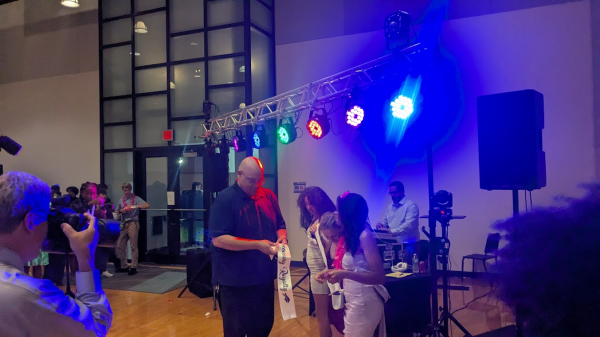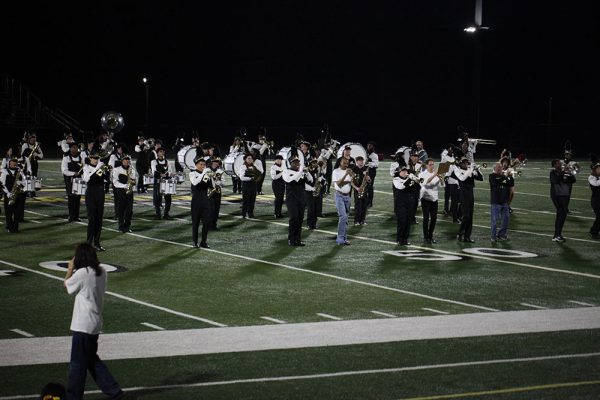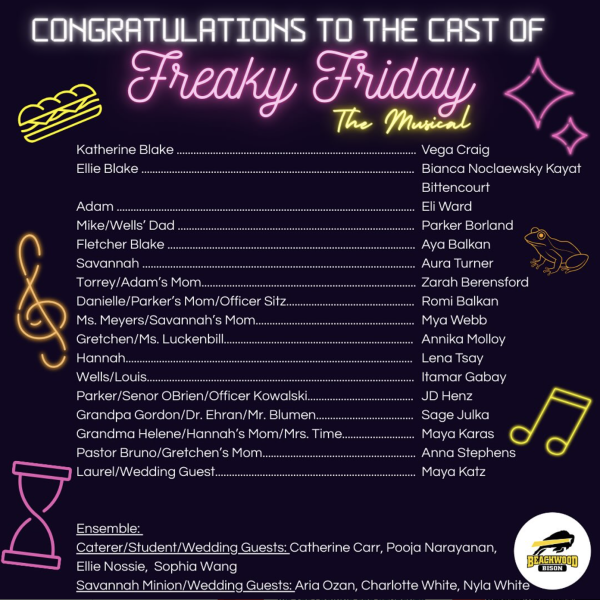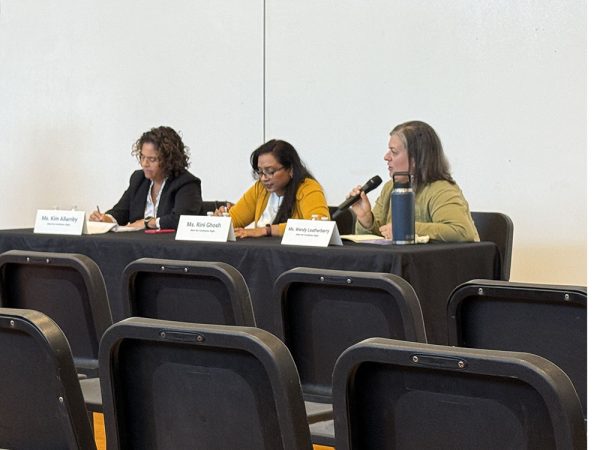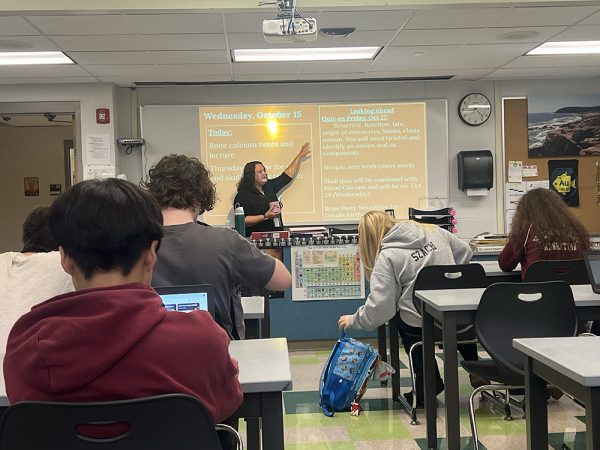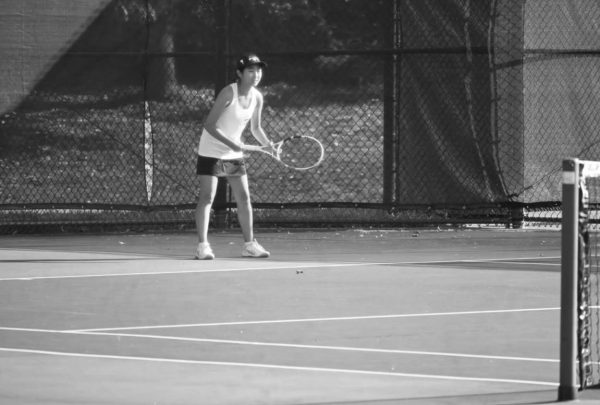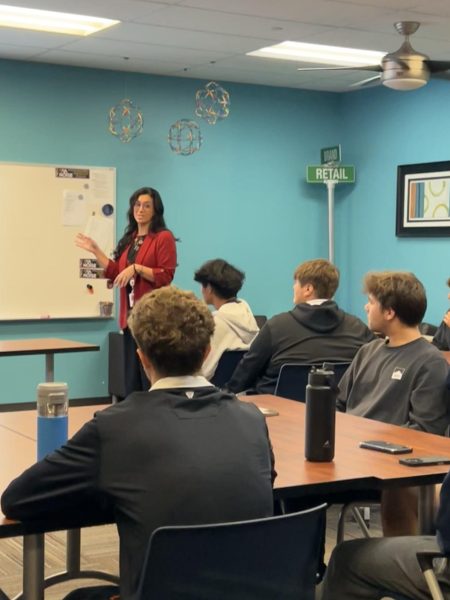Grand Army: More Than Just Your Average Teen Show
“It was great to see a diverse cast on screen with a wide range of personalities . Even with all the issues being addressed, the show doesn’t feel like it has too much on its plate, and there are no overly-cringy moments.”
When you see shows geared towards teens nowadays, they fall into two categories: shows with highly attractive teens and dry plot lines or shows that fly off the rails and try too hard to shock the audience.
Either way, these shows have something in common: they are unrealistic. Aside from the ridiculously good looking adults-too-old-to-play-teenagers, these shows are never grounded in reality and have a lot of inconsistencies with teen life today.
However, Grand Army isn’t your average teen show. Loosely based on Brooklyn Technical High School in New York City, it focuses on five different teens: Joey Del Marco, a senior on the dance team trying to make a statement; Dominique, a senior who’s trying to survive; Leila Kwan, a freshman adopted from China trying to find her way; Jayson, a senior who gets caught up in the system; and Siddartha, a closeted senior who just wants to make his parents proud.
With these five narratives, Grand Army addresses pressing societal issues in a freshly-relatable way.
Joey Del Marco
Joey’s character really focuses on something we saw a lot of last summer: white saviorism and performative activism. Joey holds a protest aimed at reducing the stigma of women’s bodies compared to men’s bodies. She wears a shirt labeled “Free The Nipple” and comes to school without a bra on, marches with her friends and other girls around the school, chanting “F*** the Patriarchy!”
While Joey is mainly praised for her actions, other students claim she is participating in “slacktivism” and is ignoring bigger issues like female genital mutilation and human rights abuses in other countries. Despite openly critical classmates, Joey only focuses on the positive comments. Why should she pay attention to a few criticisms when there are so many people not wearing bras because of what she did?
She should pay attention. Slacktivism, such as just liking an Instagram post about Black Lives Matter or resharing a petition on social media allows someone to feel accomplished in what they’re doing without having to do the hard work. Joey wearing a “Free the Nipple” shirt to school does nothing for the thousands of women being brutalized in other countries around the world.
In another instance, the all black girls basketball team prepares to kneel for a protest about ‘Black Lives Matter’. The girls are heckled and Joey kneels in solidarity. However, she then complains to her friends about the captain of the basketball team, Dominique, not paying attention to her or thanking her for doing what she did.
“People are always like, “be an ally,” so I try to be an [expletive] ally, but she’s dead grilling me! What am I, a racist [expletive] co-opting everything?”
Yes, Joey, yes you are.
The tone of Joey’s complaint reveals a teenage girl being “woke” just because she believes it will make her look good. She is not helping out of the kindness of her heart… not because she genuinely cares about progressive causes. No, she just wants to seem like she cares so she can reap the benefits of black approval for her participation.
Is Joey’s character an indecent white teenage girl who receives way too much of the show’s attention? Perhaps. But she also comes back in an unprecedented way as an all-too-common aspect of teenage life is explored: sexual assault.
Joey is portrayed in multiple scenes as very openly sexual and exuberant. She doesn’t take herself too seriously. Her core friend group includes three questionable white boys, one of whom she has an “entanglement” with, and her girl best friend who is the sister of the boy she likes. The sibling proximity is enough to cause an uproar, but the boys’ fake feminist efforts are enough to signal a dire consequence soon enough.
Each boy, despite wearing the “Free the Nipple Shirt,” have in some way shown that they only do it for female attention and nothing more.
One only cares about his pleasure during hookups. Another told Joey to “cover up so he could focus during science class.” The third sat and watched as the other two sexually assaulted Joey.
Joey’s sexual assault begged the question for many teens and millenials: If a woman is openly comfortable with her sexuality, does she deserve to be raped? Joey wears revealing clothing to school, smokes cigarettes, brings a toy around her friends as a joke, and hooks up with boys as much as many teenage boys do with girls. Does she deserve it?
Much of the show revolves around Joey, and the show offers a gloss of diversity while still placing the white woman’s story at the forefront. The other four characters seem to have more going on in terms of actual struggles outside of the school’s dress code and divorced parents. However, with the focus coming off of Joey as the season continues, there is hope for true diversity to shine through.
Despite Joey’s uninspiring story for most of season one, she redeems herself in one of the richest moments of character development I’ve seen in a coming of age show. Everyone has their reckoning, and as unsettling as Joey’s was, it allows her to let go of Grand Army High School and start anew.
Dominique Pierre
Dominique, an intelligent and fiery woman, seems like your average teenager. She and her friends have fun and crack jokes. Her friends try to encourage Dom to go after her crush John Ellis, a local activist at their school. However, Dominique and her Creole family deal with constant poverty that only gets worse and seems like there’s no honest way out.
Dominique’s character is one of the best on the show, as she is the most hard- working person on the show. She does hair, sells her own hair products, stays up in the late hours of the night completing homework and skipping parties just to make everything work. Dominique goes through more than a high school student ever should.
Poverty has always been a major storytelling point when there’s a black character. Dominique is no stranger to it. Her family considers having her marry a Hatian man for $10,000 so he can receive his green card. Her family can barely afford to cover all their groceries at Target. Her crush comes over, and she has to worry about her apartment being nowhere near as nice as his house. She goes to braid hair at homes where “gap years” and “summer trips” are commonplace. Despite all this, Dominique never fell into the stereotypical role of “strong bitter black girl ready to hustle and fight.” Dominique could freak out when her crush called her. She could laugh and make jokes with her friends on her way to and from school. She can let her hair down, be silly and be a normal teenage girl.
It was refreshing seeing a character like Dominique on screen. I could relate to her in many ways as a black woman in traditionally white spaces. She never let anyone push her down, and she still found ways to laugh in the midst of the chaos. Black girls, especially black teens, deserve to see more Dominiques on their screens.
Leila Kwan Zimmer
*Sigh*. Where do I start with this character?
Leila is, for lack of a better term, a hot mess. She falls into the senior trap, ditches her best friend Rachel for upperclassmen and essentially looks for attention in all the wrong places.
Her parents never raised her around a specific identifier or culture, leading to her identity crisis for most of the season. She was adopted from China as a baby, but has no roots tied back to her homeland, and her white parents are Jewish but not overly religious, leaving her with no real community of support.
Something really notable about her storyline is the abrupt and sometimes unnecessarily vulgar fantasy cutscenes in her storyline. It feels as if there are two stories with Leila: one where she fights off zombies and goes through an animated journey for sexual satisfaction, and her real life as a bumbling freshman girl.
I identified with Leila, as I knew what it was like to make such a big transition from middle school to high school. The freedom was almost intoxicating, the seniors were flocking about and most of all, you just wanted to fit in.
As annoying as Leila is, I can’t help but pity her and her infantile behavior. As a teenager who hasn’t encountered any form of male attention, she can’t help but become ensnared in the predatory nature of senior boys. From a high schooler standpoint, Leila could be labeled a “slut,” but from a more mature standpoint, Leila is a victim.
Although some of Leila’s actions are defensible, calling a bomb threat because you want attention isn’t one of them. Even if you lose the lead in the school play, feel alienated by your only friend, get finessed by a senior who ends up assaulting his best friend and get labeled “Jap P****” by the entire male student body, it doesn’t give you the right to completely wreck other’s lives.
Despite the potential consequences, Leila’s bomb threat seems to work for her in the short term. She reconciles with her friend Rachel in a moment of panic, she is able to find pleasure with another upperclassman named Omar, finally gets over the senior for good, stands up to her Chinese-speaking bullies by telling them to “speak English,” and the play she was booted from was cancelled. Wow.
However, Grand Army left a trail of breadcrumbs suggesting how Leila’s storyline could turn criminal. Omar finds her journal, which shows various students exploding and the school on fire, and as the evacuation occurs, a student mentions that the “loser who did this” could receive five years in prison for a false bomb threat.
Leila wants attention. From her peers, her parents, the boys at school, everyone. Whether Omar reports her to the administration or the threat is effortlessly retraced to her MacBook, one thing is clear: Leila’s about to receive all the attention she wants – maybe too much.
Jayson Jackson
Imagine you and your friend are in lockdown due to a bomb threat. You decide to pass the time by messing around, and you end up picking up your friend Dom’s wallet. You toss it back and forth while she yells at you, giving you just enough entertainment until one of you gets a case of butterfingers and drops it all the way down the stairwell.
A teacher sees what happens and reports you both to the principal’s office. Your friend gets the blame put on him, and you have to make a decision: allow him to take the fall and he gets expelled, or try to stand up for him and lessen his sentence.
Jayson’s story serves as a lesson in the black male experience of getting caught up in the system. A jazz loving saxophone player, he’s getting through the ups and downs of high school with his friend Owen. However, when they both face consequences over menial horseplay, their friendship halts.
Jayson’s story reveals three integral aspects of the black experience in predominantly white high schools: disparities in punishments, gaps within your own community and the need to find one’s own voice.
Jayson’s friend Owen faces expulsion for the “theft” of Dominique’s wallet. Even after paying Dominique back in full, and after defending Owen at the hearing, it isn’t enough to save him. This is also where Miss Performative Joey comes into the picture.
If Joey truly cared about the Black Lives Matter movement, she would acknowledge the difference in punishments between black and white students. She would listen to Dominique when she was told to back off and she would have known that her testimony of “stealing” would cost Owen way more than it would ever cost her. Joey is able to parade around basically topless in school and receives no further punishments, but Owen tosses around a wallet and gets expelled.
“This is so crazy! I feel really bad.” Joey exclaims.
“Do you?” Dominique questions.
Joey can’t even do the simplest thing that POC asked from their allies: listen. Owen receives a 60-day suspension and loses his top spot in his musical performance all because of Joey’s misconstrued words. Jayson only receives a week’s suspension.
Owen can’t afford to lose all that he has at Grand Army. But Jayson could. Another aspect of the black experience Grand Army touches on is the disparities of wealth not only between black and white communities but within the black community as well. Jayson lives in Spanish Harlem, known for its lush cultures and extremely diverse backgrounds. Meanwhile, both Owen and Dominique live in Brooklyn and know they only have one chance at messing up.
“How many times did I tell you this could happen to you?” Owen’s mom exclaims. “Will you listen to me now?”
This conversation is familiar in many black households. The “consequences won’t be the same” talk. The “walk like this, talk like this” talk. We listen and we say we’ll do what they say, but we don’t really know until we’ve had the experience.
Jayson repeatedly tries to make amends with his friend. Visiting a bloodied-lip and black-eyed Owen at his new school, Owen shows a harder exterior than in earlier episodes. He gets jumped at his new school. There are metal detectors and cops searching bags with drug dogs. It definitely steps down from Grand Army, and both Jayson and Owen know that.
After trying to make amends to no avail, Jayson reaches out to the Black Student Union and stages a sit-in for Owen’s reinstatement. Jayson feels accomplished until two things happen: Leila’s bomb threat forces an evacuation, breaking up the sit- in, and Jayson finds out his status for the musical performance.
It turns out that Owen won the top spot to perform at a big musical event in New York. However, because of his prolonged suspension, Jayson has to fill in his spot. Jayson feels terrible and has to tell Owen, which causes a rift that fully tears them apart. Jayson decides that it would be unfair to take his friend’s spot, and in the final scene of the final episode of Grand Army, Jayson is shown with black tape over his mouth, sax in hand and his fist raised in the air.
Jayson’s storyline definitely makes a statement as he is able to find his voice, do what was right and learn his lesson in the American education system. I found myself identifying with his story, as feeling lost and unheard in public schools is not a foreign concept to many people of color around the country.
Will he be penalized for the protest he made during his saxophone solo? Probably. However, it’s clear that Jayson has found a new awakening and cause. Excitement would be an understatement in describing how to feel about his storyline in Season 2.
Siddartha Pakam
“I’m a kid of color with an explosive strapped to me. A truth that could crater my entire existence and fling shrapnel into the future my parents dream for me. But when that bomb went off, my clock started ticking. And I don’t seek to hurt or destroy. Simply trying to figure out before I combust, how to live openly and freely as me… a first generation Indian American gay son.”
Intense, right? This is one of the introductions we get to Siddartha’s character, Sid for short. A first generation immigrant from New Delhi, India, he feels the pressure from all sides to be perfect. He’ll do anything to protect his family, especially his sister from a bomb p***y list, even giving up Leila as a sacrifice to spare his sister from predatory seniors.
During the lockdown in episode one due to an explosion close to the school, Grand Army watchers get a sneak peek into Sid’s household. His father constantly reminds him of the prejudice that he will face. It doesn’t matter if he isn’t Middle Eastern. He’s brown enough, and that’s what matters. I gained a new perspective from Sid’s story about when terrorist attacks happen or bomb threats are made. I’m not worried, but my Middle Eastern and Indian peers may be worried about being the new target of newfound fears because of the actions of a violent few.
Slowly, Sid comes into his own and realizes who he truly is. The signs are subtle but become glaring over time. He can’t “go all the way” with his high school girlfriend. He meets Victor, who helps him get more personal with his college essay, but he focuses on anything but the paper. Sid eventually meets with a random guy off a hookup app, and it all becomes obvious that Sid is trying to accept himself.
Sid also has very questionable white friends. Ya’ know, the type who make highly racist jokes but “they’re just joking?” Yeah, those.
Sid’s “friends” use nicknames like “Punjab” and “New Delhi” when addressing him, and they don’t get any better, especially after he comes out. “Pride Punjab” and “Queen of New Delhi” are the newest quips. It is refreshing to see Sid come into his own and put them into their place, especially after their crimes against Joey don’t make them immune from any backlash either.
“Remind me to never get into a cab with you [expletive] again. Or an Uber. Who knows what you’d guys do.”
Sexual predators owned.
I found Sid’s coming out story refreshing. Many kids don’t have control over their own coming out stories, often being exposed by other kids. They also don’t always have accepting or unconditional love from their parents. Sid’s story touches on both of these aspects, as his Harvard essay is exposed to the entire student body by his sister’s ex boyfriend, and his family rejects the idea of their perfect Stanford son being gay. Movies like Love, Simon show this unrealistic idea of coming out being possible without facing prejudice. Sid’s story focused on Indian students and their families, a perspective that is all too commonly left out in teenage stories.
Sid’s story ends with a lot more questions than answers. He breaks up with his girlfriend as it becomes glaringly obvious he’s gay. Will they be friends? After he tells Victor he got into Stanford, Victor kisses him. What’s going to come from that? Will his parents finally accept him the way he is and stop caring about what other people think? Season 2 can only come so fast.
Overall, Grand Army felt like a gust of fresh air. It was great to see a diverse cast on screen with a wide range of personalities . Even with all the issues being addressed, the show doesn’t feel like it has too much on its plate, and there are no overly-cringey moments. It truly shows a realistic take on being a teenager in the age of Gen Z.
The show is not without flaws, however. Sid’s model minority portrayal, Joey’s front-and-center storyline for much of the season and the typical “black and poor” trope prove to be low hanging fruit for the directors.
I found myself wishing for a different perspective at times. Maybe an Indian or Asian character who isn’t set on going to an Ivy League school. A white character who doesn’t shroud the diversity. A black student who is actually prospering financially
Additionally, the off camera silencing of minority voices is enough to question the producer’s true intentions behind the show and the honesty of bringing a diverse cast into the competitive fold of shows like Skins, Euphoria, and Degrassi.
Aside from on and off-camera drama, Grand Army is a show that makes you say “finally.” Gripping and monumentally contemporary, this show definitely makes a whole new statement on teen life.
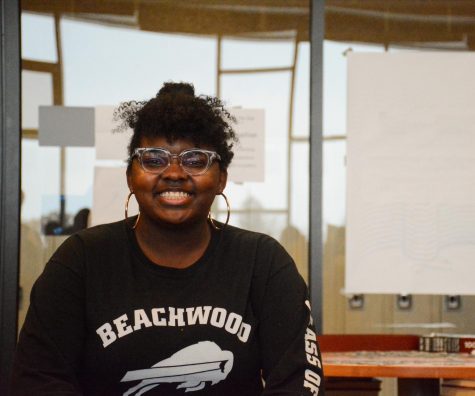
Carrington Peavy (she/her) began writing for the Beachcomber in 2017. She likes to cover in depth investigative stories. In addition to writing for the...





